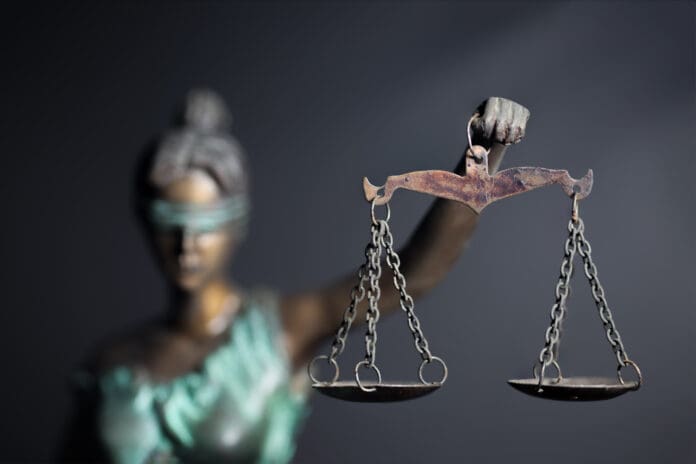
Rachael Wilks claims she acted in self-defense when she shot and killed Brian Brown, the father of her unborn twins, inside their Gainesville home on New Year’s Eve 2021. Her attorney, Aaron Kelley, told the jury on Wednesday that Wilks feared for her life after enduring numerous instances of domestic violence and threats from Brown.
“After going through multiple instances of domestic violence, after going through multiple occasions of being told by Brian Brown that he was going to kill her; after going through multiple versions of how he was not only going to kill her, but he was going to kill the children inside of her – she had a fear that those threats were going to be real,” Kelley stated during his opening remarks at the Alachua County Courthouse and reported on by WUFT.
Wilks, who recently turned 32, is on trial for first-degree murder. Her arrest on February 1, 2022, came after detectives noted inconsistencies in her account of the events leading up to the shooting.
Prosecutors, while not yet presenting a motive, argue that Wilks did not act in self-defense when she shot Brown, 31, once in the head.
“Take everything Ms. Wilks says with a grain of salt,” Assistant State Attorney Danny Ley advised the jury.
WUFT reports that Ley highlighted discrepancies in Wilks’ statements, including the location of her gun and the extent of the abuse she reported. Initially, Wilks claimed she retrieved her gun from her purse and showed it to Brown, but later she stated she held the gun behind her back. Ley also pointed out that Wilks initially described physical abuse but later became vague about the details.
On the morning of the shooting, Ley noted, Wilks engaged in calm activities like watching TV and eating breakfast, which he argued were inconsistent with someone in a distressed state. Ley concluded that the evidence would demonstrate Wilks’ guilt in committing first-degree murder.
To counter that argument, Wilks’ attorney, Kelley, provided a background on Wilks and Brown’s relationship, mentioning they met in high school but only began dating between 2019 and 2020. Wilks had four other children, aged 4, 5, 5 and 6, and Brown lived with them as a family. Concerned for her safety, Wilks bought a gun when she started working as a nighttime delivery driver. She typically kept it in a holster in her purse when outside and on a high shelf in a bedroom closet at home.
Kelley recounted that the couple’s relationship had its good moments, but the bad times were particularly severe. On the night before the shooting, after a day at the beach with the children, Brown drank heavily and continued drinking at home. An argument ensued when Wilks told Brown she wanted him to move out. Brown allegedly told Wilks he was going to kill her. The following morning, another altercation occurred when Wilks reiterated her demand.
The shooting took place around 11:30 a.m. Sixteen minutes later, Wilks called 911 while driving her children to her parents’ home. She reported firing her weapon in self-defense and requested emergency services to check on Brown.
Kelley argued that the inconsistencies in Wilks’ statements were due to the trauma she experienced, a common experience for people who have just experienced something so harrowing and a huge reason criminal defense and self-defense attorneys urge people not to make statements to police until after they have had time to calm down and speak to their attorney first. Kelley urged the jury to deliver a not guilty verdict, asserting that Wilks’ actions were indeed justified.
The prosecution is expected to call more witnesses before closing arguments and jury deliberations today. If convicted, Wilks faces a life sentence without parole, as the state is not seeking the death penalty in this case.
Again, this case underscores the importance of holding off on making any statements or answering police questions until speaking with your legal representation first following a defensive shooting. While we may all feel justified in our actions and feel that we want to be honest in telling our side of the story and explaining what happened, our minds and memories can be affected by the trauma, causing us to unintentionally speak in inconsistencies, especially when under stressful questioning by detectives. Even police departments recognize this, often giving their officers up to 72 hours to provide a statement following an officer involved shooting or death or serious injury of a suspect while in their custody.
Reading between the lines of the case may also underscore the need to make better life decisions, but as socially debatable as that may be, bad decisions aren’t against the law. The outcomes of some of those decisions can be.
Read the full article here